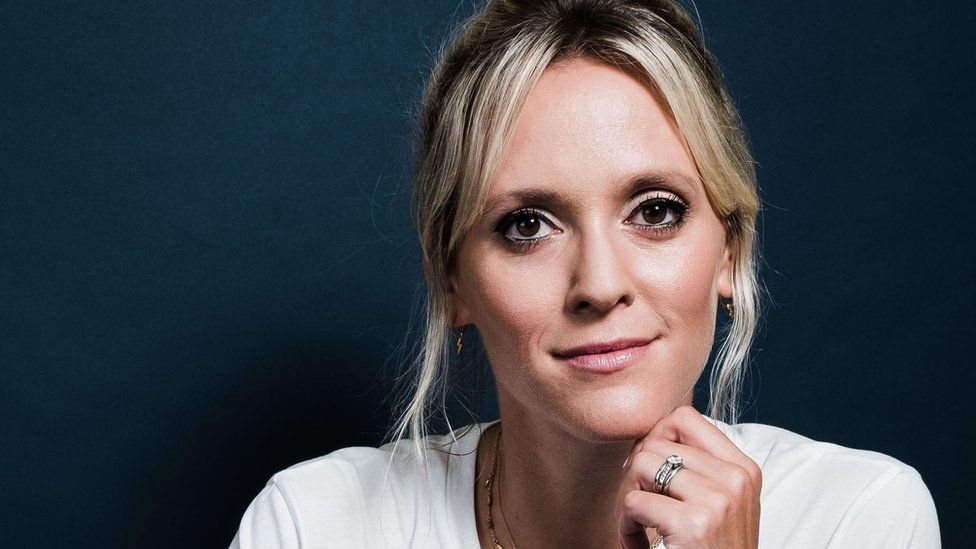BBC presenter says music helped her 'to live' after brain haemorrhage
- Published

BBC presenter Clemency Burton-Hill has spoken about how music has helped her recover from a major brain haemorrhage.
The 39-year-old Radio 3 host underwent emergency brain surgery after she collapsed in New York in January.
Months later, she says music has played a key role, as she re-learns how to speak and walk.
"Sometimes it is the thing that gives me solace," she says. "And sometimes it's the thing that helps me to get up, and fight, and to live."
"It is the ultimate motivation," Clemmie - as she is known by her friends and colleagues - told friend and journalist Sophie Elmhirst.
The presenter, who is behind Radio 3's award-winning Classical Fix programme, as well as a regular face on the BBC's Proms coverage, is currently living in New York where she is creative director at WQXR, the New York public radio classical music station.
At the start of the year, she suffered a massive brain haemorrhage caused by a previously undiagnosed condition: an arteriovenous malformation (AVM), an uncommon and abnormal cluster of blood vessels meshing the arteries and veins in her brain.
It could have been fatal.
As it is, doctors removed half of her skull during emergency surgery at Mount Sinai West hospital in Manhattan, and she was unconscious for 17 days. No one was certain how much of her brain would recover.
Throughout those early days, music played on a speaker by her hospital bed - the playlist compiled by her loved ones.
Before she showed any sign of consciousness, British opera singer Andrew Staples - a close friend who was performing in New York when the presenter collapsed - recalls her left foot tapping along to some Brahms.
"I remember it struck me as a non-typical piece to inspire toe-tapping," Staples recalls.
A week or so later, just as doctors were removing the tubes that had initially aided her breathing, one of Burton-Hill's favourite pieces of music, Richard Strauss's Morgen, happened to play through the speaker.
"With her good hand she grabbed my wrist as I leant over her shaven head, and I sang the words to her," says Staples. "We both cried a lot. I wasn't worried from then on about whether she was 'in there' anymore."
While she can't remember that moment, Burton-Hill recalls how she seemed to make a choice of whether to give up or to live just as she was regaining consciousness.
"It was literally: I can do this, I'm going to get through this," she says now. "Music is the opposite of despair. It was going to be worth the fight."
'Ambidexterous'
As her recovery stepped up, friend and renowned violinist Nicola Benedetti came to visit and together they play Bach, with Burton-Hill - herself a violin soloist - playing the left hand on the violin and Benedetti bowing. Astonishingly, the broadcaster still recalled all the notes.
"It's a clichéd idea that music is beyond language," she says, "but from what I've experienced in my own brain, I truly know that now."
Gradually, language and movement have begun to return despite the obstacles to recovery thrown up by the coronavirus pandemic.
"I really believe music is a part of my recovery because it uses both sides of the brain," says Burton-Hill.
"It's as though it trains your brain to be ambidextrous."